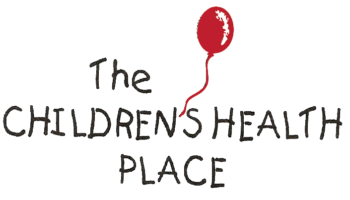Welcome to Cyndi’s Corner!
Hi! I’m Cyndi Desormeaux, or Dr. Cyndi as the kiddos like to call me, Phyician Assistant is a little difficult for the small kiddos so we go with Dr. Cyndi. I am a licensed Physician Assistant and I have worked for The Children’s Health Place for 18 years. I love working with children, and children’s health starts with strong family health. While a child’s physical health is extremely important, I also like to focus on the mental health of your child as well as your family dynamic. In Cyndi’s Corner I want to address some common questions I hear from parents. Many times, as parents, we face questions, we don’t know the answer to. When it comes to your child’s health it can be tough to decide when to see a doctor, what kind of doctor to see first, and if you should be alarmed at all. Follow along with our quarterly blog and we’ll try to help you through common parenting questions.
Dear Cyndi,
“My 8-year-old daughter has been complaining of frequent headaches. I have been giving her children’s Motrin, but the headaches seem persistent. She has been missing a lot of school, do you think she is faking her symptoms? Should I call and schedule an appointment with you”?
School aged children frequently complain of headaches. A simple way to help determine if she is “faking” her headaches to avoid going to school is to keep a headache diary. If they are only occurring on weekdays and she seems fine on weekends as well as school holidays, then it is time to explore why she doesn’t want to go to school. Otherwise, here are the common causes of childhood headaches:
- Dehydration – make sure to increase her water intake
- Hunger / Low blood sugar – she should have protein (meat, fish, eggs, cheese, nuts, peanut butter) with meals and snacks. Is she skipping meals especially at school? Are mealtimes consistent throughout the week, or does mealtime change daily?
- Overtired – she should be sleeping 8-10 hours per night. Enforcing a bedtime and removing items such as tablets, tv’s and phones from the room, help ensure they can receive sound, uninterrupted sleep.
- Eye strain – decrease non-school related screen time (TV, phones, tablets and computers) to 2 hours or less. Have her eyes checked by an eye doctor?
As to your question “when to bring her in?”
Immediately schedule an appointment if she is having such bad headaches that she feels like she was hit in the head by a baseball bat or the pain is more than she can deal with. If she has any abnormal neurological signs like one sided weakness to her body or vision loss, she needs to be seen. Otherwise try eliminating the common causes of headaches listed above for one week. If there is still no improvement with the persistent headache then schedule an appointment. If you have been keeping a headache diary, please bring that in with your appointment, it is very helpful for the provider to have a headache diary to find some common patterns or triggers.
Dear Cyndi,
“My 12-year-old son’s eating habits and activity levels have changed over the past few months. Previously he ate dinner with the family and enjoyed playing with his siblings outside. Now he barely eats his food and stays in his room all day. Should I be worried or is this part of kids growing up”?
Preteens and teenagers need space to separate themselves from their parents and families. It is a very normal part of adolescence to require more alone time and to not want to participate in some of the childish play they previously enjoyed.
What can we do as parents to re-engage with our teens?
- Find new ways to connect – new hobbies or activities … instead of going to the playground go play paintball (wear eye protection).
- Keep interactions positive – it is too easy to focus on the negatives such as clothing choice but other than enforcing household dress rules celebrate your teen’s creative style.
- Negotiate family time with the teen, for example you must sit down and eat with the family and spend 1 hour playing with your siblings, but the rest of the evening is yours
- Reach out to your teen to talk but don’t push too hard.
What is worrisome is the fact that you stated that his eating patterns and activity levels have changed as well as the fact that he is isolating himself more. Here are signs that he might be depressed rather than just being a teenager.
- Isolating from family and friends
- Stopping sports or other activities
- Grades dropping
- Sleep habits changing – excess sleep or being unable to sleep
- Appetite changes – weight loss or gaining excessive weight
- Poor self-image – always down on themselves
- More emotional – crying or anger
- Substance abuse
- Self-injurious behaviors such as cutting
Call our office (970-356-2600) if your teen is showing any signs of depression, suicidal thoughts, or self-injury
If the teen expresses suicidal plans, call the Colorado Crisis Line at 1-844-493-8255
Or
Go to – North Range Behavioral Health Crisis Center at 928 12th Street Greeley Colorado. North Range Behavioral Health Crisis Center is staffed by trained behavioral health therapists 24 hours / 7 days a week. You can also reach them at 970-347-2120
Use the emergency room only as a last resort
Thank you for taking the time to read our articles. The Children’s Health Place is currently accepting new patients and most health plans.


